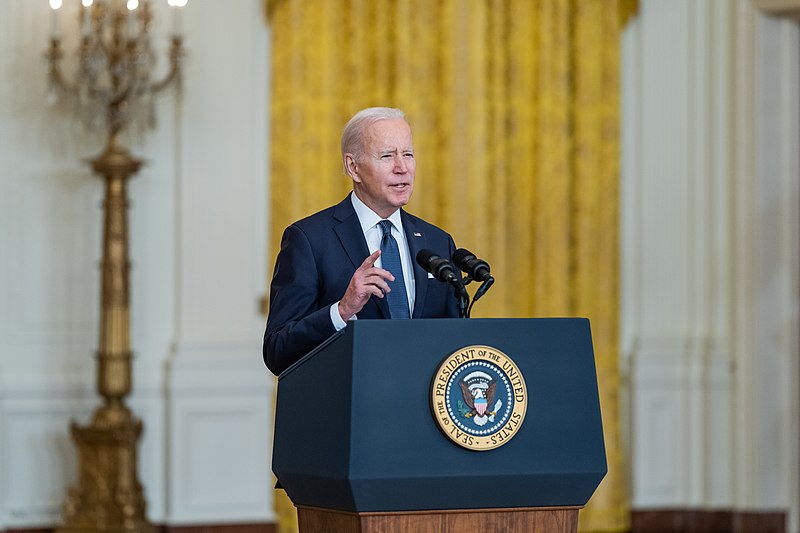US President Joe Biden announced more appointments this week to advisory board posts. Biden nominated actress Taraji P. Henson and NBA star Chris Paul to the presidential advisory boards for Historically Black Colleges and Universities.
The White House announced Biden’s newest appointments to the HBCU presidential advisory boards, with Henson and Paul the latest to be tapped for the positions. This also comes as Biden re-established the HBCU Initiative in 2021.
“Incredibly humbled to be appointed to President Biden’s HBCU Board of Advisors. Looking forward to working with this amazing group to continue to elevate these institutions,” tweeted Paul.
“I am excited to announce that President Biden has appointed me to serve on his HBCU Board of Advisors. Since taking office, the President and Vice President Harris have invested $5.8 Billion in HBCUs and I look forward to working with them to continue efforts to support these important institutions,” said Henson in a post the actress shared on Instagram.
The members of the advisory board will work to “increase the capacity of HBCUs to provide the highest quality education to its students and continue serving as engines of opportunity,” said the White House.
The US leader has appointed Tony Allen and Glenda Glover as the board’s chair and vice-chair respectively. Back in February, Biden appointed Dietra Trent as the executive director.
Other appointees that were announced to the advisory board are Makola M. Abdullah, Javaune Adams-Gaston, Paige Blake, Thasunda Brown Duckett, Willie A. Deese, Patrick Cokley, Monica Goldson, Brett J. Hart, Beverly W. Hogan, Lisa P. Jackson, Shevrin D. Jones, Walter M. Kimbrough, William F.L. Moses, Christopher E. Paul, Quinton T. Ross Jr., Ruth J. Simmons, and Janeen Uzzell.
In other related news, Reuters reports that Biden may consider invoking a Cold War-era Defense law in the coming days to encourage domestic production of minerals needed to make batteries for electric cars, according to people with knowledge of the matter.
This kind of order under the Defense Production Act is expected to help companies access government funds for feasibility studies for projects that would extract lithium, nickel, and other metals for electric vehicles, or to improve existing facilities.



 New York Legalizes Medical Aid in Dying for Terminally Ill Patients
New York Legalizes Medical Aid in Dying for Terminally Ill Patients  Anutin’s Bhumjaithai Party Wins Thai Election, Signals Shift Toward Political Stability
Anutin’s Bhumjaithai Party Wins Thai Election, Signals Shift Toward Political Stability  Trump’s Inflation Claims Clash With Voters’ Cost-of-Living Reality
Trump’s Inflation Claims Clash With Voters’ Cost-of-Living Reality  Netanyahu to Meet Trump in Washington as Iran Nuclear Talks Intensify
Netanyahu to Meet Trump in Washington as Iran Nuclear Talks Intensify  India–U.S. Interim Trade Pact Cuts Auto Tariffs but Leaves Tesla Out
India–U.S. Interim Trade Pact Cuts Auto Tariffs but Leaves Tesla Out  Nicaragua Ends Visa-Free Entry for Cubans, Disrupting Key Migration Route to the U.S.
Nicaragua Ends Visa-Free Entry for Cubans, Disrupting Key Migration Route to the U.S.  Israel Approves West Bank Measures Expanding Settler Land Access
Israel Approves West Bank Measures Expanding Settler Land Access  Trump Allows Commercial Fishing in Protected New England Waters
Trump Allows Commercial Fishing in Protected New England Waters  Trump Lifts 25% Tariff on Indian Goods in Strategic U.S.–India Trade and Energy Deal
Trump Lifts 25% Tariff on Indian Goods in Strategic U.S.–India Trade and Energy Deal  Sydney Braces for Pro-Palestine Protests During Israeli President Isaac Herzog’s Visit
Sydney Braces for Pro-Palestine Protests During Israeli President Isaac Herzog’s Visit  Trump Signs Executive Order Threatening 25% Tariffs on Countries Trading With Iran
Trump Signs Executive Order Threatening 25% Tariffs on Countries Trading With Iran  U.S. Lawmakers to Review Unredacted Jeffrey Epstein DOJ Files Starting Monday
U.S. Lawmakers to Review Unredacted Jeffrey Epstein DOJ Files Starting Monday  Trump Backs Nexstar–Tegna Merger Amid Shifting U.S. Media Landscape
Trump Backs Nexstar–Tegna Merger Amid Shifting U.S. Media Landscape  China Overturns Death Sentence of Canadian Robert Schellenberg, Signaling Thaw in Canada-China Relations
China Overturns Death Sentence of Canadian Robert Schellenberg, Signaling Thaw in Canada-China Relations  Ohio Man Indicted for Alleged Threat Against Vice President JD Vance, Faces Additional Federal Charges
Ohio Man Indicted for Alleged Threat Against Vice President JD Vance, Faces Additional Federal Charges  Japan’s Prime Minister Sanae Takaichi Secures Historic Election Win, Shaking Markets and Regional Politics
Japan’s Prime Minister Sanae Takaichi Secures Historic Election Win, Shaking Markets and Regional Politics  Trump Administration Appeals Court Order to Release Hudson Tunnel Project Funding
Trump Administration Appeals Court Order to Release Hudson Tunnel Project Funding 































